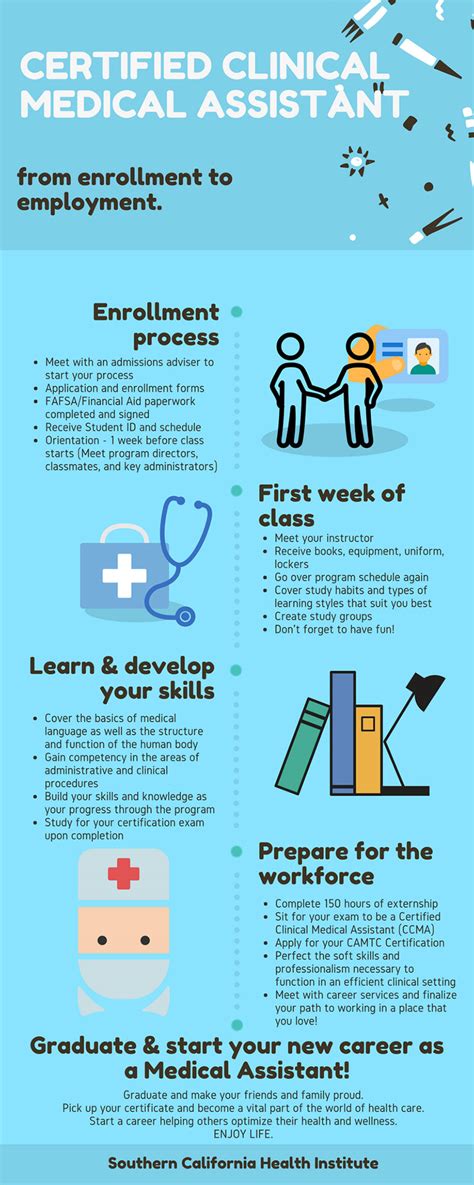Transitioning from a medical assistant career to a surgical technologist career can be a strategic move for those looking to advance their skills and opportunities in the healthcare industry. As a medical assistant, you already possess a solid foundation in patient care, medical terminology, and clinical procedures. Building upon this foundation, you can leverage your existing knowledge and experience to pursue a career as a surgical technologist.
Why Make the Transition?
There are several compelling reasons to consider transitioning from a medical assistant to a surgical technologist career. Some of the key benefits include:
- Increased Job Satisfaction: Surgical technologists play a critical role in the operating room, working closely with surgeons, anesthesiologists, and other healthcare professionals to ensure safe and effective surgical procedures. This level of involvement can lead to a greater sense of job satisfaction and fulfillment.
- Improved Career Advancement Opportunities: With the demand for skilled surgical technologists on the rise, this career path offers opportunities for advancement and professional growth.
- Enhanced Salary Potential: Surgical technologists tend to earn higher salaries than medical assistants, with median salaries ranging from $45,000 to over $70,000 depending on location and experience.
- Expanded Skill Set: As a surgical technologist, you will develop a broader range of skills, including sterile technique, patient positioning, and surgical instrumentation.
Education and Training Requirements
To become a surgical technologist, you will need to complete a formal training program in surgical technology. These programs are typically offered at community colleges, vocational schools, and universities, and may lead to a certificate, diploma, or associate's degree.
- Certificate Programs: Certificate programs in surgical technology are usually 12-18 months in duration and provide a comprehensive introduction to the field.
- Associate's Degree Programs: Associate's degree programs in surgical technology typically take two years to complete and offer a more in-depth education in the field.
- Online Programs: Some online programs are available for those who prefer the flexibility of distance learning.
Key Skills and Knowledge
To succeed as a surgical technologist, you will need to possess a range of key skills and knowledge, including:
- Sterile Technique: The ability to maintain a sterile environment and prevent infection.
- Patient Positioning: The ability to safely and effectively position patients for surgical procedures.
- Surgical Instrumentation: Familiarity with a range of surgical instruments and equipment.
- Anatomy and Physiology: A solid understanding of human anatomy and physiology.
- Communication and Teamwork: The ability to communicate effectively with surgeons, anesthesiologists, and other healthcare professionals.

Making the Transition
If you are a medical assistant looking to transition to a surgical technologist career, here are some steps you can take:
- Research Training Programs: Research formal training programs in surgical technology to find one that meets your needs and career goals.
- Update Your Education: Complete any necessary prerequisites or coursework to prepare for a surgical technology program.
- Gain Experience: Gain experience in the operating room or a related field to build your skills and knowledge.
- Network: Network with other surgical technologists and healthcare professionals to learn more about the field and build connections.
Certification and Licensure
Certification and licensure requirements for surgical technologists vary by state, but many employers require certification as a Certified Surgical Technologist (CST).
- Certified Surgical Technologist (CST): The CST certification is offered by the National Board of Surgical Technology and Surgical Assisting (NBSTSA) and demonstrates a level of expertise and competence in the field.
- State Licensure: Some states require licensure to practice as a surgical technologist.
Career Outlook
The demand for skilled surgical technologists is on the rise, with the Bureau of Labor Statistics predicting a 3% growth in employment opportunities through 2028.
- Job Opportunities: Surgical technologists can work in a range of settings, including hospitals, outpatient surgery centers, and physician offices.
- Specialization: With experience, surgical technologists can specialize in a particular area of surgery, such as cardiovascular or neurosurgery.
Conclusion
Transitioning from a medical assistant to a surgical technologist career can be a rewarding and challenging move. With the right education, training, and experience, you can build a successful and fulfilling career in this field. Remember to research training programs, update your education, gain experience, and network to make the transition as smooth as possible.
Practical Tips for Medical Assistants Transitioning to Surgical Technologists
- Highlight Transferable Skills: Emphasize the skills you have developed as a medical assistant that are relevant to a surgical technologist role, such as patient care and medical terminology.
- Build Your Knowledge: Stay up-to-date with the latest developments and advancements in surgical technology to demonstrate your commitment to the field.
- Network: Connect with other surgical technologists and healthcare professionals to learn more about the field and build relationships.
Common Challenges Faced by Medical Assistants Transitioning to Surgical Technologists
- Learning Sterile Technique: Mastering sterile technique can be a challenge for those new to the operating room.
- Adjusting to a Fast-Paced Environment: The operating room can be a fast-paced and high-pressure environment, requiring surgical technologists to think and act quickly.
- Developing Communication Skills: Effective communication is critical in the operating room, requiring surgical technologists to communicate clearly and concisely with surgeons, anesthesiologists, and other healthcare professionals.






What is the average salary for a surgical technologist?
+The average salary for a surgical technologist varies by location and experience, but median salaries range from $45,000 to over $70,000.
What are the education and training requirements for a surgical technologist?
+Surgical technologists typically complete a formal training program in surgical technology, which may lead to a certificate, diploma, or associate's degree.
What are the key skills and knowledge required for a surgical technologist?
+Surgical technologists need to possess a range of key skills and knowledge, including sterile technique, patient positioning, surgical instrumentation, anatomy and physiology, and communication and teamwork.
